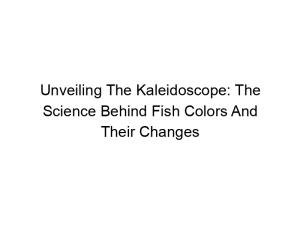Do you ever wonder if your goldfish recognizes you when you approach its tank? Can fish recognize their owners? This seemingly simple question opens a fascinating window into the surprisingly complex world of fish intelligence. This article delves deep into the latest research, exploring the evidence for fish recognition, the different ways they might identify individuals, and the factors influencing their ability to do so. We’ll examine various fish species, discuss the limitations of current understanding, and dispel some common myths. You’ll learn about the different senses fish utilize, the social structures within fish communities, and how these factors impact their ability to recognize familiar humans and other fish. Get ready to be surprised by what these seemingly simple creatures are capable of.
It’s easy to anthropomorphize—projecting human characteristics
onto animals. We might assume that because a fish seems to come to the surface when we approach, it recognizes us. However, this behavior could be due to learned associations (like feeding time) rather than true recognition. Fish cognition differs significantly from human cognition; understanding this difference is crucial.
The Evidence for Fish Recognition: Scientific Studies
Observational Studies and Experimental Design
Several studies utilize controlled experiments to test fish recognition. Researchers employ various methods, including marking individuals, creating visual cues and manipulating social dynamics within a tank environment. These studies attempt to tease apart learned associations from genuine recognition.
Visual Recognition in Fish: Sight and Shape
The Role of Visual Cues
Many fish species rely heavily on vision. Experiments have shown that some fish can distinguish between different individuals based on unique markings, body shape, and even subtle behavioral differences. This recognition might be particularly developed in species with complex social structures.
Olfactory Recognition: The Power of Smell
Chemical Signals and Individual Scent
Smell plays a critical role in fish communication and recognition. Fish produce unique chemical signatures that other fish can detect, allowing them to identify individuals even in murky water or at a distance. This olfactory system can contribute to recognizing familiar owners.
Auditory Recognition: Sounds and Vibrations
Recognizing Sounds Associated with Owners
While often overlooked, auditory recognition could play a subtle role. Fish are sensitive to vibrations and sounds; repeated sounds associated with feeding or interacting with the owner might create a learned association. However, direct evidence of auditory-based owner recognition is still limited.
Individual Differences in Fish Recognition Abilities
Species-Specific Variations
The capacity for recognition varies greatly across species. Highly social species, such as cichlids, tend to demonstrate more sophisticated recognition skills than solitary fish. Factors such as brain size and complexity also influence recognition ability.
The Role of Memory in Fish Recognition
Short-Term and Long-Term Memory
Fish possess both short-term and long-term memory, though the exact capacity and duration vary by species. The ability to remember past encounters with an owner is essential for establishing recognition. Research exploring long-term memory in fish recognition is ongoing.
The Impact of Habituation and Conditioning
Learned Associations and Predictable Behaviors
Fish can become habituated to certain stimuli, such as the appearance of their owner. This habituation, combined with classical or operant conditioning (reward-based learning), can influence their behavior and potentially lead to the appearance of recognition.
Comparing Fish Recognition with Other Animals
Comparative Studies and Evolutionary Perspectives
Comparing fish recognition abilities with other animals offers valuable insights. Studies comparing fish to other vertebrates highlight the evolutionary pressures that shaped the development of recognition systems.
Ethical Considerations in Fish Research
Minimizing Stress and Ensuring Animal Welfare
Ethical considerations are paramount in fish research. Studies must prioritize animal welfare, minimizing stress and ensuring appropriate care. Understanding ethical guidelines is crucial for responsible research.
Technological Advancements in Fish Cognition Research
New Tools and Techniques for Studying Fish Behavior
Advances in technology, including underwater video recording, advanced tracking systems, and sophisticated analytical tools, are enhancing the capabilities to study fish behavior, behavior analysis and recognition in greater detail.
The Future of Fish Recognition Research
Unanswered Questions and Ongoing Studies
Despite significant progress, much remains unknown about fish recognition. Future research will explore more species, focus on the neural mechanisms underlying recognition, and investigate the ecological implications of this cognitive ability.
The Influence of Environmental Factors
Habitat Complexity and Social Dynamics
The complexity of a fish’s environment and the social structure of its group can significantly influence its recognition abilities. Fish living in complex, densely populated environments might exhibit more advanced recognition skills than those in simpler environments.
The Benefits of Understanding Fish Cognition
Conservation Efforts and Animal Welfare
A deeper understanding of fish cognition is crucial for conservation efforts and improving animal welfare. Knowledge of their abilities to recognize and respond to human interactions helps optimize captive breeding programs and ensure responsible fishing practices.
Limitations of Current Research
Methodological Challenges and Species Variations
Current research faces certain limitations, including challenges in designing controlled experiments and the vast diversity of fish species, each with its unique cognitive characteristics.
Applications of Fish Cognition Research
Aquaculture and Fish Farming
Understanding fish recognition can be applied to improve aquaculture and fish farming practices, enabling more effective management of fish populations and potentially increasing yields.
Frequently Asked Questions
What are the different methods used to study fish recognition?
Researchers use various methods, including marking individual fish, observing their behavior in controlled environments, and employing sophisticated tracking systems to analyze their movements and interactions. Behavioral tests involving presenting familiar and unfamiliar stimuli are also used.
How does fish recognition compare to recognition in other animals?
While less extensively studied than in mammals, fish demonstrate surprisingly sophisticated recognition abilities. Their methods, though based on different sensory inputs (olfaction, vision), parallel those in other animals. Social complexity influences the level of recognition.
What are the ethical implications of researching fish recognition?
Minimizing stress and ensuring the well-being of the fish are paramount. Researchers must follow strict ethical guidelines, ensuring proper housing, handling, and experimental design to prevent harm and distress.
Can all fish species recognize their owners?
No. The ability to recognize owners varies significantly between species. Highly social fish with complex social structures are more likely to show evidence of individual recognition.
How does a fish’s environment impact its recognition abilities?
Environmental factors like habitat complexity and social structure play a significant role. Fish in complex environments often display more developed recognition skills than those in simpler ones.
What are the future directions of fish recognition research?
Future research will likely delve deeper into the neural mechanisms underlying recognition, explore a wider range of species, and investigate the ecological significance of these abilities.
Final Thoughts
The question of can fish recognize their owners? is answered with a nuanced “yes, but it depends.” While not all fish species exhibit the same degree of recognition, growing evidence suggests that many are capable of recognizing individuals, including their owners, utilizing various sensory modalities. This understanding is not just scientifically fascinating, but also crucial for improving animal welfare, optimizing aquaculture practices, and better informing conservation strategies. The field is rapidly evolving, and future research promises to reveal even more surprising insights into the cognitive capacities of these often-underestimated creatures. So next time you approach your aquarium, remember the fascinating intelligence at play and consider how much more there is to discover about these amazing underwater inhabitants.




